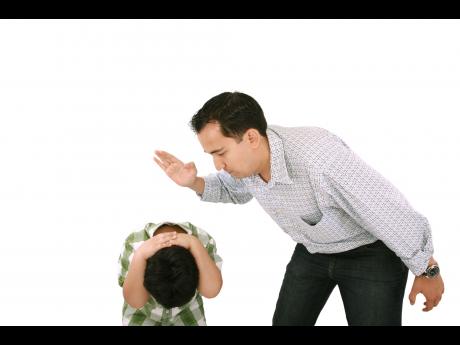A Thin Line Between Punishment and Abuse
Children are like clay and parents are potters that can mould them into something beautiful, but with too much force you can deform them. Therefore, one has to be careful when punishing their little ones.
Sometimes there is a thin line between punishment and abuse, especially when it comes to corporal punishment. Psychiatrist Dr E. Anthony Allen believes it is often understandable why parents steer away from it all together. He does not deem hitting a child wrong or right because it is dependent on culture. But he notes that with the Jamaican culture and the violence people are exposed to, it might be best to avoid hitting a child.
He notes that there are no rules as to how many slaps it will take for a child to learn their lesson, and due to anger some parents and teachers (in schools that allow corporal punishment) might go too far. What a parent does not want to do is abuse the child instead of punishing them.
Before punishing a child, Dr Allen notes that there are certain things that should be in place. He notes that first parents need to ensure that a lesson is taught. Discuss the rules and consequences. If they disobey, remind them of the consequences, all this should be done before the punishment.
He highlighted that punishment should not be vengeful or done in anger. This is why it is best to discuss the punishment beforehand so the child knows what they are being punished for. "If you just shout at the child or slap them the instant they do something wrong you are teaching or telling the child it is OK to shout and hit people."
Abuse, whether it be physical, emotional or verbal, will have short-term and long-term effects on the victim. The effects are dependent on whether a child internalises or eternalises the abuse.
Short-term effects include being withdrawn, shy, and cutting (predominantly teenagers). Long-term effects may lead to depression, suicide attempts, not being assertive in their own jobs causing them to be stuck on one level instead of going up because they care what people might say.
Other individuals might be more aggressive - getting into fights and later on be involved in domestic abuse. They might also create a cycle of abuse inflicting the same abuse they have received because this is what they know.
While it might appear that the line between punishment and abuse is clear, it can be easier through communication. Never do anything in anger because you may lose control, and ensure you teach them what you want them to practise.
He also notes that children with any mental or psychological illness will take a bit more patience and talking, than the average child, so no need to get frustrated.
jody-anne.lawrence@gleanerjm.com

